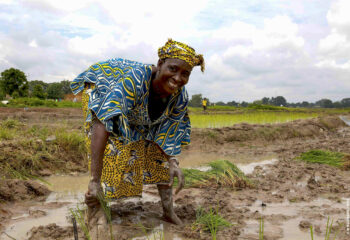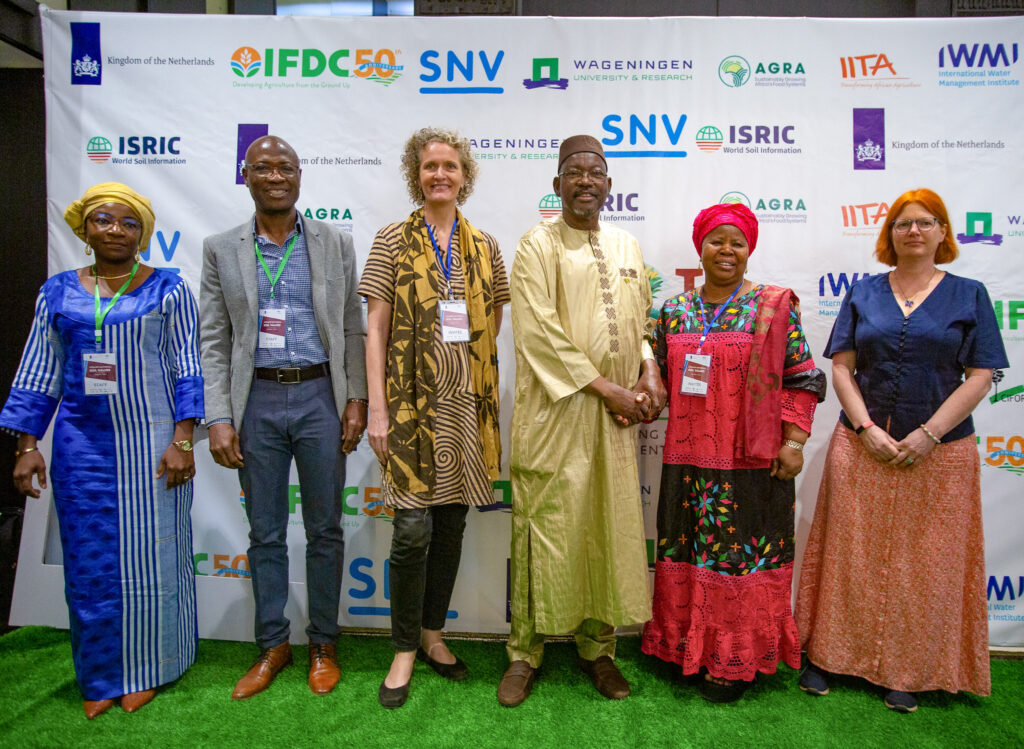
IFDC held national launches of the Soil Values program in Niamey, Niger, on May 13; Ouagadougou, Burkina Faso, on May 16; Kano, Nigeria, on May 20; and Bamako, Mali, on May 23. These events provided an opportunity to mobilize and provide information to national stakeholders in each country and to establish a framework for collaborative action at the national level, in line with the program’s objectives.
Following the official launch of the Soil Values program in Abuja, Nigeria, on April 16, the national launch ceremonies formalized the effective start-up of the program in the implementing countries. Since its inception, Soil Values has been designed to be an inclusive program. To this end, the launches in each country brought together various partners and national players involved in agricultural development.
In Burkina Faso, the Soil Values launch ceremony brought together several flagship projects and programs, as well as national public institutions and regional and international organizations, working in the field of soil health. These include the Agriculture Resilience and Competitiveness Project (PReCA), West Africa Food System Resilience Program (FSRP), Regional Sahel Pastoralism Support Project (PRAPS), National Soil Bureau (BUNASOLS) of the Institute of Environmental and Agricultural Research (INERA), Cooperative for Marketing Agricultural Inputs and Equipment (COCIMA), and the Permanent Inter-State Committee for Drought Control in the Sahel (CILSS).
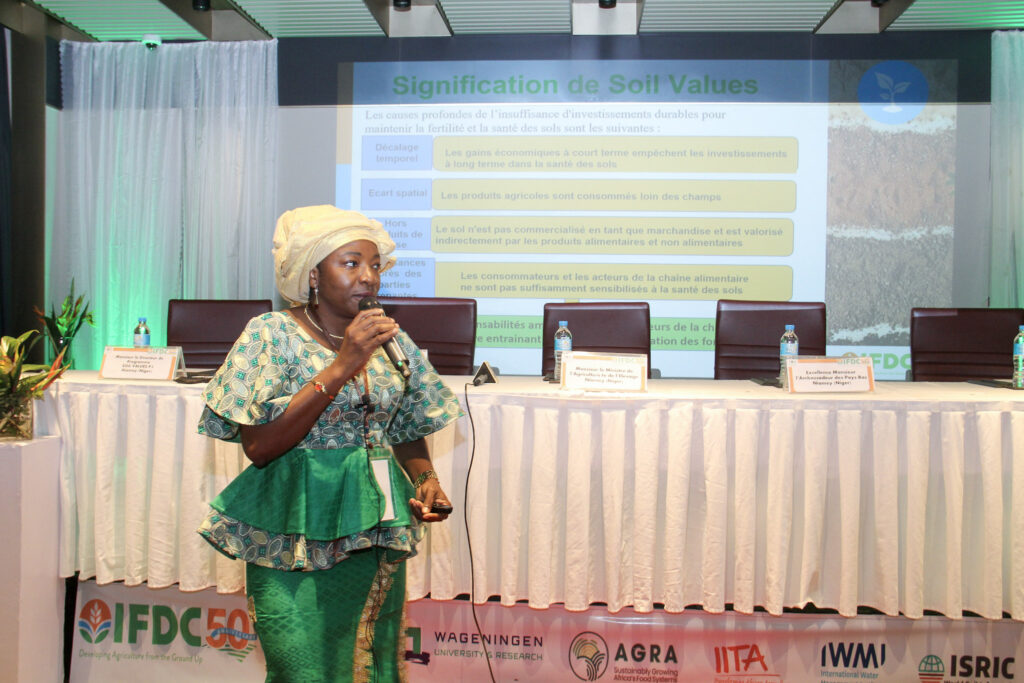
During the national launches, the various country ministries in charge of agriculture, livestock, and sustainable development reaffirmed their support and readiness to work with the Soil Values program and the implementing consortium.
“We are reassured and confident in IFDC’s ability to implement this program, as it has proven experience in the design and implementation of large-scale agricultural projects and programs, particularly in the Sahelian context.”
Dr. Dahir Muhammed Hashim, State Coordinator of the Agro-Climatic Resilience in Semi-Arid Landscapes (ACReSAL) program
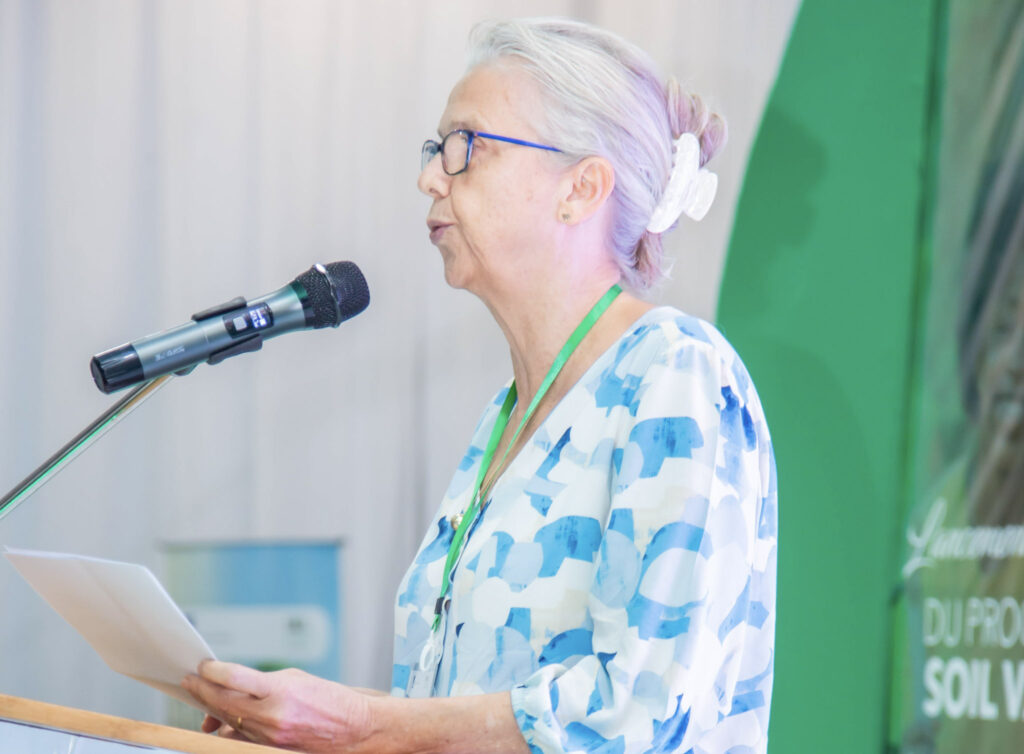
According to Mali’s Minister of Agriculture, Lassine Dembélé, the objectives of Soil Values are consistent with the development strategy and policy of Sahelian countries, especially with regard to soil health and fertility. Soil Values Program Director Bidjokazo Fofana assured the governments of the countries where the program has been launched of his firm commitment to help remove the obstacles to soil fertility and health. The aim of the program is to achieve sustainable improvements in food productivity and increase the resilience of farmers in the Sahel.
“We are fully committed to persevering in our efforts to create lasting positive impact and realize our shared vision of a future where communities thrive and ecosystems are preserved. We all share a collective responsibility to defend and develop soil health. More momentum is needed in Africa to address critical soil issues, such as nutrient loss, climate shocks and challenges, and resource management,” emphasized Fofana.
“We must recognize the need to enhance sustainable soil management practices, given the depletion of our land.”
Mahaman El Hadj Ousmane, Niger Minister of Agriculture and Livestock
In each of the countries where the Soil Values program is being implemented, representatives of consortium member SNV affirmed their determination to work closely with local partners and contribute their expertise to achieve the program’s objectives. They expressed their firm belief in the need to strengthen partnerships to meet the complex challenges facing the Sahel’s agriculture sector. “We must recognize the need to enhance sustainable soil management practices, given the depletion of our land. We welcome the arrival of the program, which will work to develop agriculture in Niger. We are fully prepared to facilitate the program’s implementation in Niger,” added Niger’s Minister of Agriculture and Livestock, Mahaman El Hadj Ousmane.
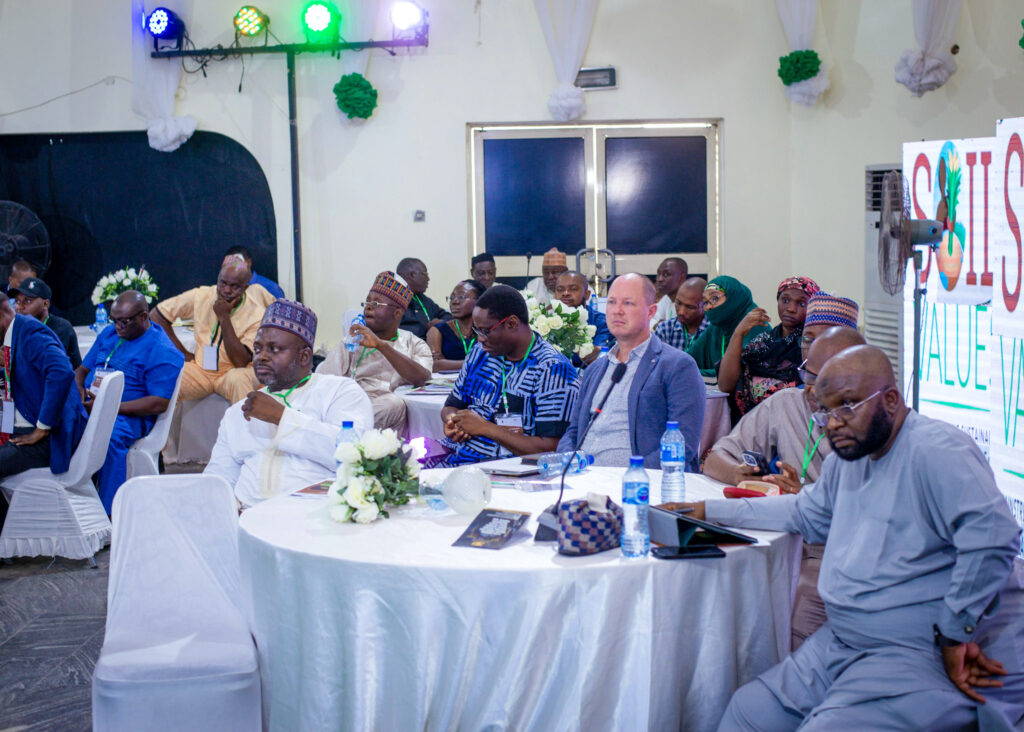
The Soil Values program is currently being implemented to support agricultural producers in the Sahel thanks to the financial support of the Directorate-General for International Cooperation (DGIS) of the Netherlands. With a budget of €100 million the program will support four countries over 10 years (2024-2034).
Moussa Dionou, IFDC Country Director of Mali and Burkina Faso, expressed IFDC’s appreciation, saying “We would like to express our deep gratitude to DGIS, which has kindly encouraged the development of viable mechanisms through its financial support for the implementation of Soil Values. This funding provides the opportunity to continue supporting food producers to contribute to sustainable improvements in agricultural productivity and increased resilience of food production systems in the Sahel.”
Alongside the national launches, the Soil Values team organized national technical workshops to define a collaborative framework for coordinated action with national partners.
“The technical workshops not only aim to align interventions with development objectives but also will help define the conditions for partnerships between Soil Values and existing national programs, notably the West African Food System Resilience Program, funded by the World Bank,” explained Dr. Jean Ekwe Dossa, IFDC Director of Soil Health and Agricultural Productivity.
Soil Values is implemented by a consortium led by IFDC, in collaboration with lead partners SNV and Wageningen University and Research (WUR), as well as knowledge partners, such as AGRA, World Agroforestry (ICRAF), the International Institute of Tropical Agriculture (IITA), ISRIC – World Soil Information, and the International Water Management Institute (IWMI).


